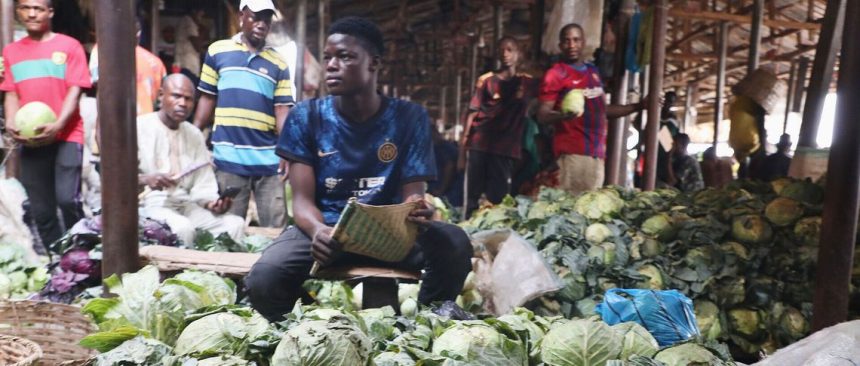In the run-up to the 2023 presidential election, I posited that the future looked so scary for Nigeria that, even if I were offered a substantial sum to preside as President, I would decline. I wondered why anyone would become so desperate to take the position.
Historical Context
Nigeria’s economy has been faltering, and despite many attempts to obscure its evident collapse, the debilitating nature of the economy could no longer be hidden. Following the oil price collapse in late 2014, foreign portfolio investors (FPI) began to withdraw, and the Nigerian economy began to swerve, experiencing significant exchange rate volatility. The naira rose from N163 to a dollar in 2014 to over N1600 to a dollar today, triggering hyperinflation. Inflation moved from a single-digit rate of 8.0% in 2014 to 32% in 2024, wiping out the middle class, pushing millions into poverty, and prompting massive emigration among the youth and skilled workers—a movement now known as Japa, meaning “to run.”
The Need for Reforms
Economic reforms are not new to Nigeria; they are all too familiar. During the Shagari regime, the need for economic reforms partly led to the military coup that ousted him and subsequently ousted the military government led by Buhari a few months later. Under Babangida, the Structural Adjustment Policy (SAP) aimed to recalibrate the Nigerian economy on a pragmatic path, but it set the country on a path of endless protests.
The underlying reason for Nigeria’s economic reforms revolved around government financing. Rather than investing its revenue to increase productivity amid stagnating growth and nonexistent infrastructure, the government used revenue to provide subsidies. It created an artificial price for petroleum products and foreign exchange, suppressing the real cost with the country’s revenue, at the opportunity cost of investments in infrastructure, education, and healthcare.
Tinubu’s Reform Agenda
The Nigerian economy needed urgent surgery—this was self-evident. We knew Nigeria was heading towards a fast decline after years of living in artificial stability. With fast-declining revenue, rising debts, and hyperinflation, reforms could no longer be postponed. This surgery would have dire repercussions on Nigeria, which no Nigerian president wanted to be part of, except for Pres. Obasanjo who attempted to be the wedge. No one can outrun its shadows. we could no longer avoid these reforms- it was a cul-de-sac or what has been defined as a wicked problem
The Tinubu administration focused on correcting long-standing issues that had persisted for decades and exacerbated Nigeria’s debt and slowed productivity and national development. Removing subsidies on foreign exchange and petroleum products became a necessity with no alternative. It is important to clarify that while subsidies themselves are not inherently problematic, they should be funded from revenue and not debt. Nigeria shifted from funding subsidies with its revenue to borrowing, which led to a debt trap. The debt-to-GDP ratio rose to 40%, while debt-to-revenue surpassed 90%, meaning Nigeria used nearly all of its revenue to service debt. Nigeria used all its revenue to service debt- this is the major reason why our budget performance has been abysmal. To continue funding these subsidies, the last administration borrowed heavily from the CBN. This heavy borrowing, reportedly up to N50 trillion from the CBN, without corresponding productivity gains, is chiefly responsible for the hyperinflation we witness today.
While Nigeria fell into a debt trap to maintain its subsidies, it also lost out on opportunities for infrastructure development. It became clear that Nigeria, which had mortgaged its future oil sales to stabilise the dollar rate and pay for petroleum subsidies, could no longer afford these without facing bankruptcy, a balance of payments crisis, or the need for an IMF bailout. Moreover, Nigeria could not sustain paying salaries without borrowing further from the Central Bank. Thus, what is termed Tinubu’s reforms became necessary with no alternative.
However, reforming Nigeria’s public finance management does not end with removing foreign exchange market subsidies (known as “floating”) or removing the subsidy on petroleum prices. It also demands a total restructuring of government expenditure to prioritise productivity and reduce waste—a reform that has not been fully addressed.
The Need for Comprehensive Reforms
So far, the reforms in the Nigerian economy have been haphazard and incomplete. While I fully support the removal of the petrol subsidy and the floating exchange system, as no alternative decisions exist, I do not view these two policy reforms as an end in themselves. As mentioned earlier, the reforms were intended to overhaul public financing. While the aspects of the reforms that directly impact the poor have been implemented, the other half, which affects the elites, has yet to be addressed.
A comprehensive reform should include government austerity measures to reduce waste. However, with the appointment of 46 ministers, the purchase of private jets, and new vehicles by the Presidency, the National Assembly, and sub-national governments still engaging in wasteful spending, it seems little has changed. Just last week, I read about the Ekiti House of Assembly going on a “working visit” to Canada. The presidency is no better, and the federal budget remains full of waste. Was it not just last year that Nigeria sent a delegation of over 500 people to a UN conference on climate change? A few weeks ago, the President went on a global tour for his vacation, missing the opportunity to vacation in Nigeria, which would have served as a signal to support local jobs, retain capital within the country, and save scarce resources. Furthermore, the president’s and ruling elites’ continued foreign medical treatments signal a lack of faith in the system which would have also served as a signal that our health institutions are very rated, thus relieving the much stressed foreign exchange market from further pressure due to medical tourism. A few months ago, the President’s wife, Remi Tinubu, launched a national unity fabric at a lavish ceremony. I wondered how much was spent on the event and what it achieved.
I would have expected that reforming the Bureau of Public Enterprises (BPE) to cut wastage and eliminate contract racketeering would have been a top priority just as I had expected that the Budget Office would also prioritise capital projects that boost productivity while cutting down on overhead costs and eliminating low-significance projects that litter the budget. Constituency project funds, which have become a bazaar for lawmakers, should have been abolished, and the funds pooled to rehabilitate or build strategic roads or gas pipelines that connect productivity centres or to increase energy generation. These funds could also be invested in agriculture to lower food inflation, which is currently at a 28-year high with about a 30% year-on-year increase.
Unfortunately, the elite-focused aspects of reform have remained untouched, leaving the poor to bear the brunt while the distribution of resources continues to favour the elite disproportionately.
Cultural Reforms
In addition to financial reforms, Nigeria needs cultural reforms—reforms that place the nation’s interests at the centre of policy initiatives, unlike the current trend where policies and contracts are designed to benefit individuals rather than the country. A culture that promotes materialism and validation through excessive acquisition of foreign goods and items needs to change. A culture that does not foster patriotism but prioritises individualism, tribalism, and self-interest should be replaced. Finally, a culture that detests hypocrisy is essential; the elites cannot continue stockpiling dollars for personal, non-market needs and then question why the exchange rate is unstable.


